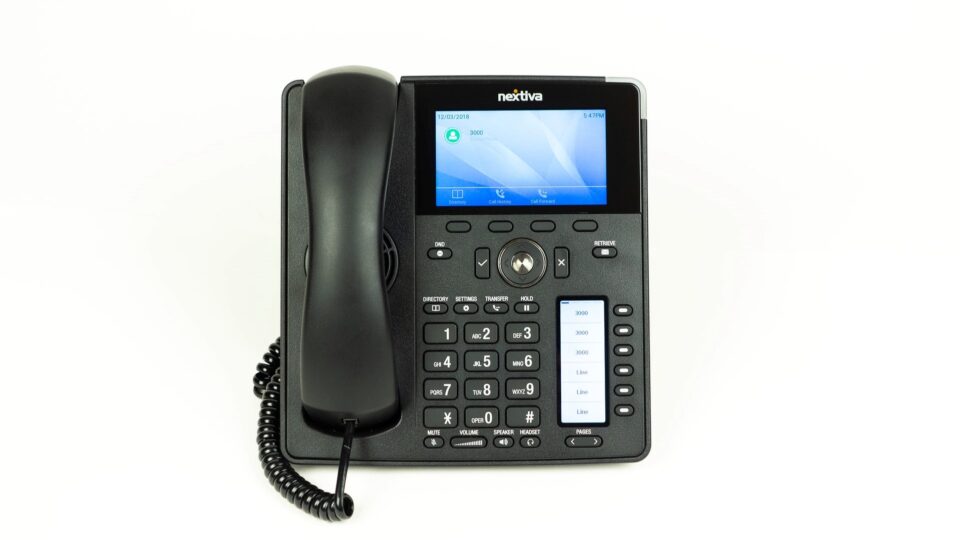In today’s fast-paced digital age, effective communication is the cornerstone of success for individuals and businesses alike. The advent of IP phones has revolutionized the way we communicate, bridging the gap between traditional telephony and advanced digital technologies.
IP phones, also known as VoIP (Voice over Internet Protocol) phones, leverage the power of the internet to transmit voice and multimedia data, offering numerous benefits over conventional telephone systems.
In this article, we will explore the remarkable transformation brought about by IP phones and how they have become an indispensable tool for seamless communication.
Table of Contents
Enhanced Functionality and Features
IP phones have introduced a new level of functionality and features that were previously unimaginable with traditional telephone systems.
From call forwarding and voicemail to call recording and video conferencing capabilities, IP phones offer a comprehensive set of tools that improve communication efficiency.
Features like call waiting, caller ID, and auto-attendant further enhance user experience, allowing for greater control and customization.
With the ability to integrate with other digital platforms and applications, IP phones provide a seamless communication ecosystem that boosts productivity and collaboration.
Cost Savings and Scalability
One of the significant advantages of IP phones is the cost savings they offer compared to traditional telephony systems.
By transmitting voice data over the internet, IP phones eliminate the need for dedicated phone lines, resulting in substantial savings on infrastructure and maintenance costs.
Additionally, long-distance and international calls are significantly cheaper with IP phones, making them an ideal choice for businesses with global operations.
Furthermore, IP phones are highly scalable, allowing organizations to add or remove lines easily as their communication needs evolve, without incurring significant expenses.
Mobility and Flexibility
IP phones provide unparalleled mobility and flexibility, enabling users to communicate from anywhere with an internet connection.
With the advent of softphones and mobile applications, users can transform their laptops, smartphones, or tablets into virtual IP phones, making it possible to make and receive calls even when they are away from their physical desk phones.
This mobility empowers employees to work remotely, collaborate on the go, and stay connected across geographies. The flexibility of IP phones adapts to the dynamic nature of modern work environments, promoting productivity and work-life balance.
Integration and Unified Communications
IP phones seamlessly integrate with other communication tools and platforms, enabling unified communications across multiple channels.
Whether it’s integrating with customer relationship management (CRM) software, email clients, or instant messaging platforms, IP phones consolidate various communication channels into a single interface.
This integration streamlines workflows, improves response times, and enhances the overall customer experience. By unifying communications, IP phones facilitate efficient information sharing, collaboration, and decision-making within organizations, fostering a cohesive and connected work environment.
Superior Call Quality and Reliability
IP phones offer superior call quality and reliability compared to traditional telephone systems. With advancements in internet speeds and bandwidth, voice data can be transmitted with exceptional clarity and minimal latency.
Additionally, IP phones employ sophisticated codecs and protocols that optimize voice transmission, ensuring crystal-clear conversations.
Moreover, IP phones are equipped with redundancy and failover mechanisms, minimizing downtime and maintaining uninterrupted communication. The combination of superior call quality and reliability makes IP phones a reliable and efficient communication tool for businesses of all sizes.
Conclusion
The revolution of IP phones has transformed the way we communicate, bridging the gap between traditional telephony systems and advanced digital technologies.
With enhanced functionality, cost savings, mobility, integration capabilities, and superior call quality, IP phones have become an indispensable tool for businesses seeking efficient and seamless communication solutions.
As technology continues to advance, IP phones will evolve further, offering even more innovative features and integration possibilities

